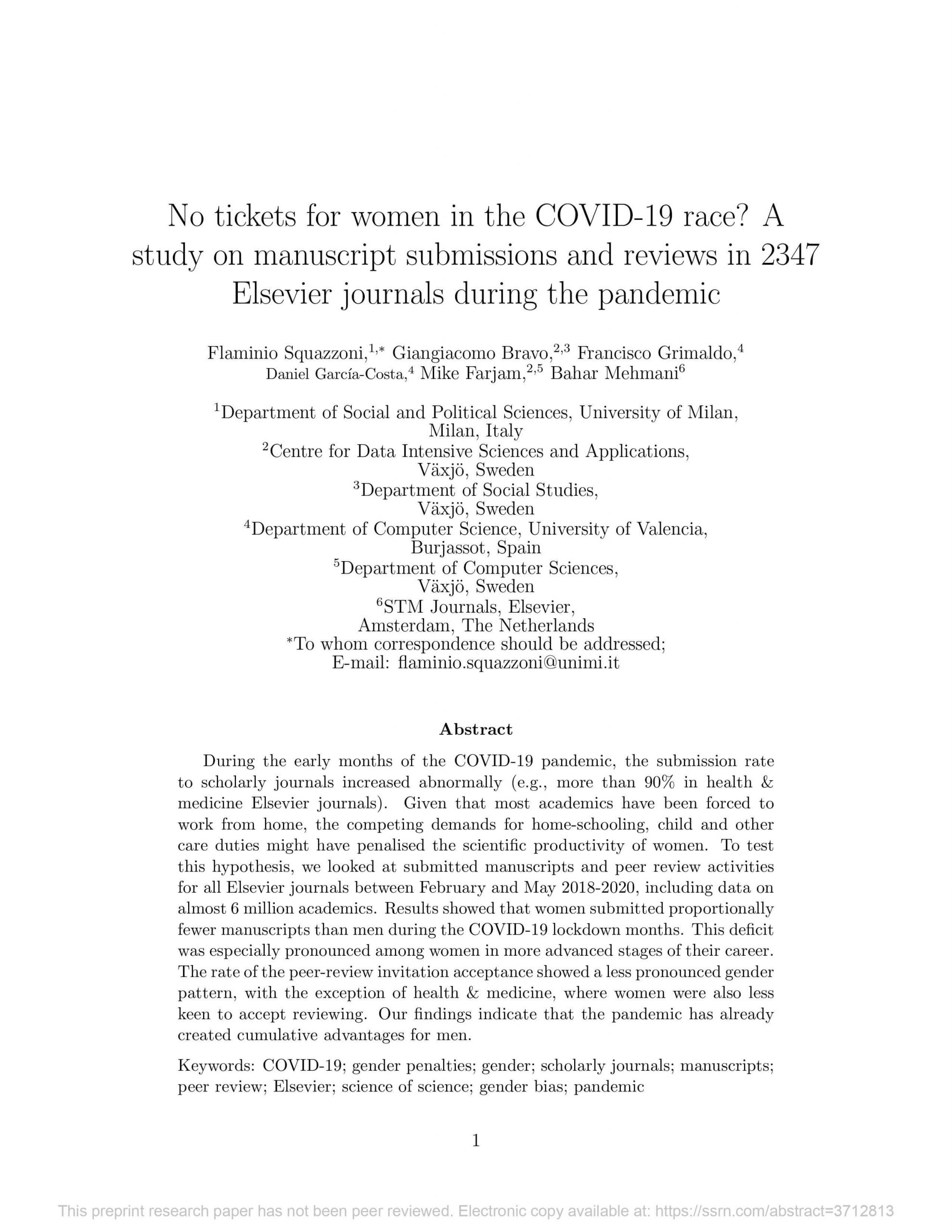During the early months of the COVID-19 pandemic, the submission rate to scholarly journals increased abnormally (e.g., more than 90% in health & medicine Elsevier journals). Given that most academics have been forced to work from home, the competing demands for home-schooling, child and other care duties might have penalised the scientific productivity of women. To test this hypothesis, we looked at submitted manuscripts and peer review activities for all Elsevier journals between February and May 2018-2020, including data on almost 6 million academics. Results showed that women submitted proportionally fewer manuscripts than men during the COVID-19 lockdown months. This deficit was especially pronounced among women in more advanced stages of their career. The rate of the peer-review invitation acceptance showed a less pronounced gender pattern, with the exception of health & medicine, where women were also less keen to accept reviewing. Our findings indicate that the pandemic has already created cumulative advantages for men.
Flaminio Squazzoni, Giangiacomo Bravo, Francisco Grimaldo, Daniel Garcıa-Costa, Mike Farjam and Bahar Mehmani. (2020). No Tickets for Women in the COVID-19 Race? A Study on Manuscript Submissions and Reviews in 2347 Elsevier Journals during the Pandemic. SSRN.






